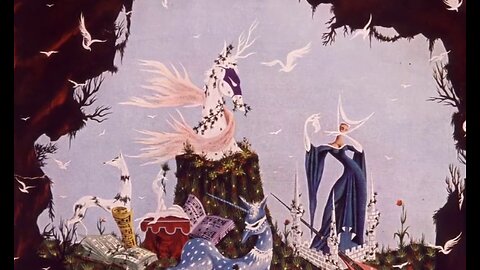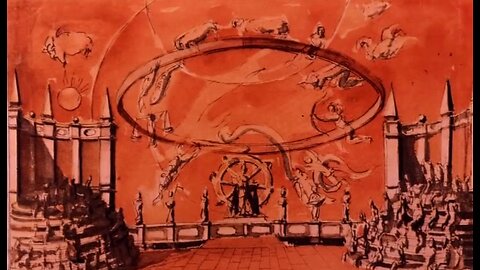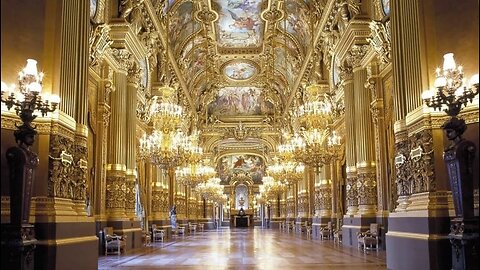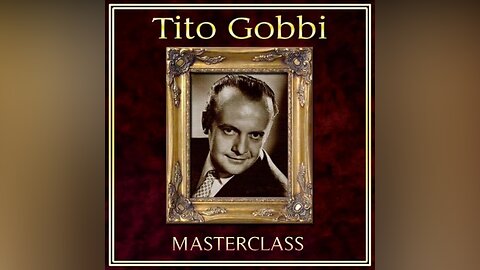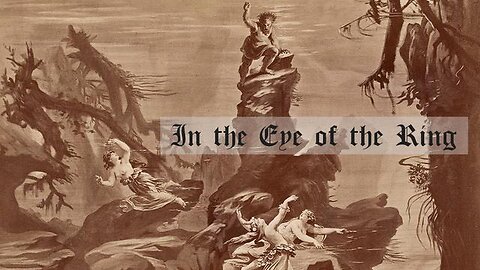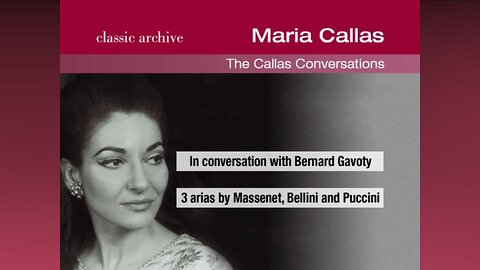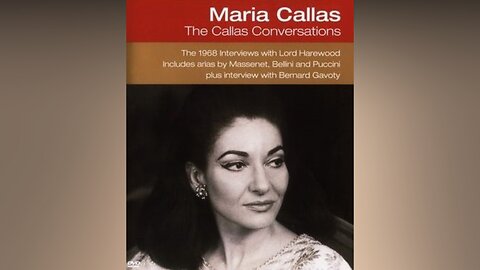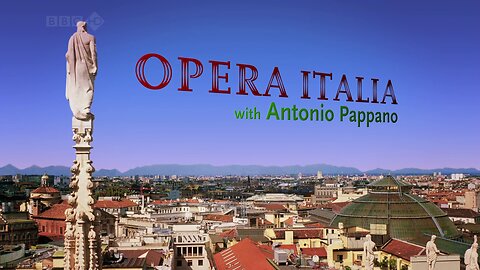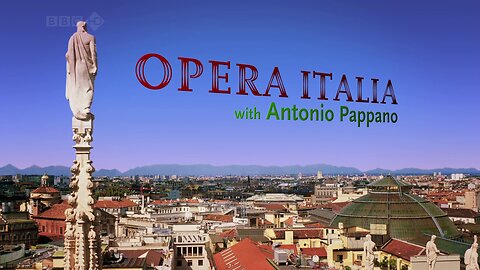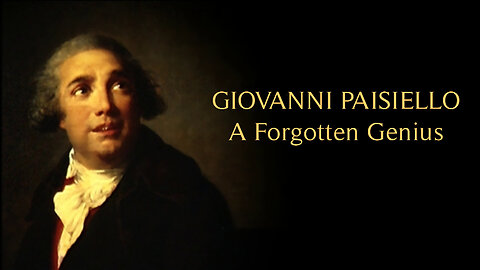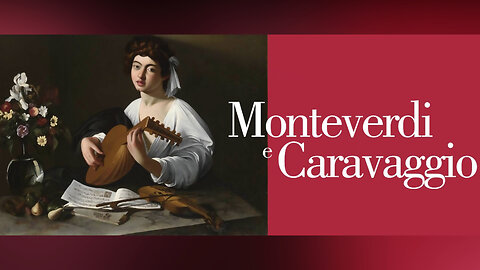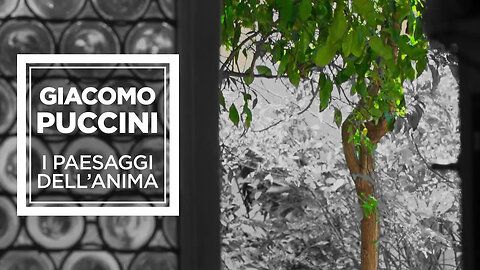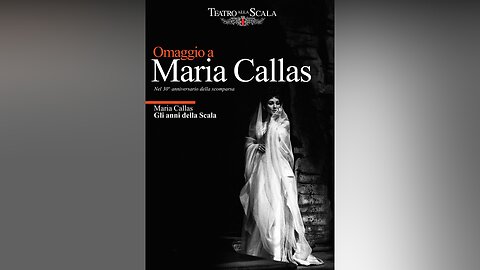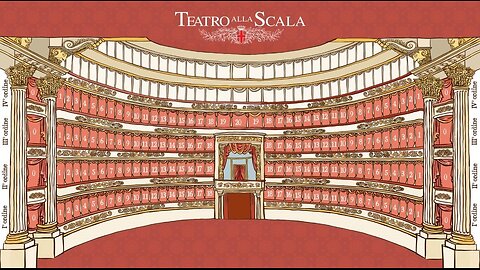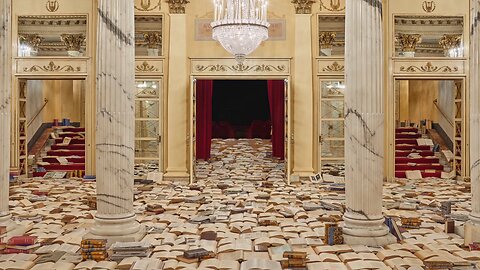Premium Only Content
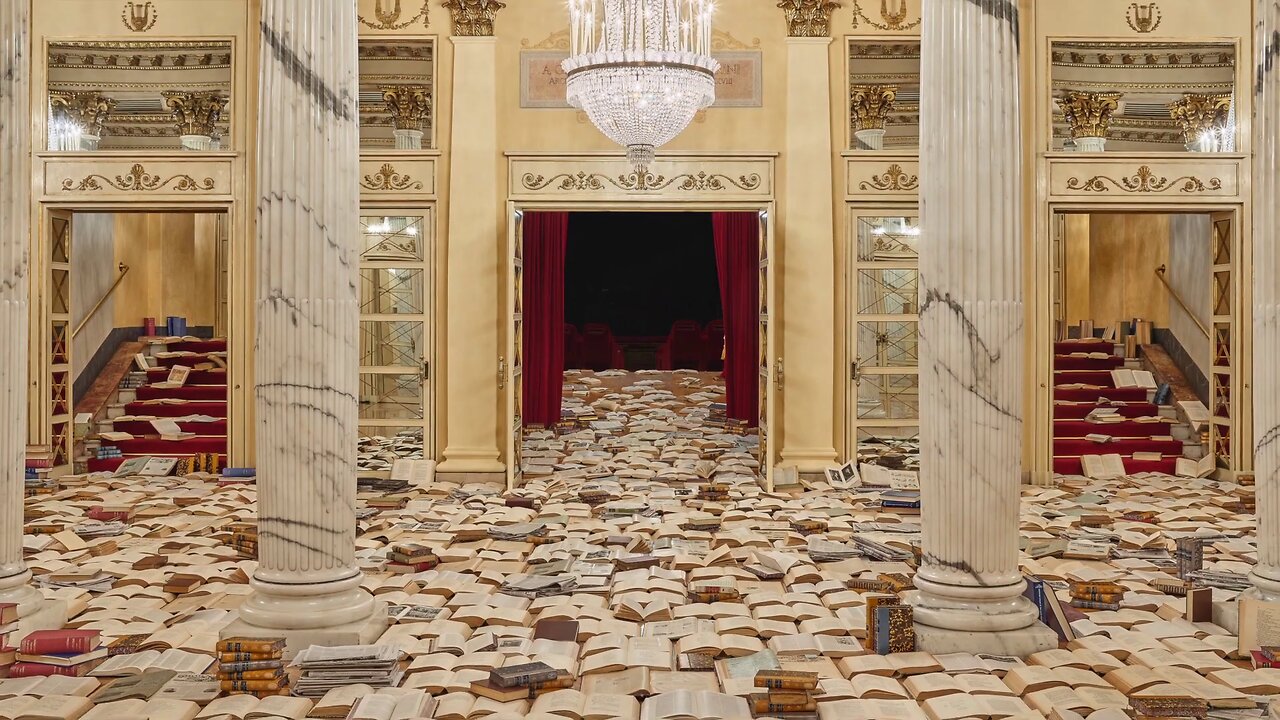
I Am La Scala
An Opera House for an Empire - Paris Opera
A Lesson in Music - Tito Gobbi Masterclass (ENG SUB)
In the Eye of the Ring | Wagner's Ring Cycle
The Callas Conversations | Maria Callas in conversation with Bernard Gavoty & Three Arias
The Callas Conversations | Maria Callas talking to Lord Harewood (Part II)
The Callas Conversations | Maria Callas talking to Lord Harewood (Part I)
Opera Italia: Beginnings (Episode 1)
Opera Italia: Viva Verdi (Episode 2)
Opera Italia: The Triumph of Puccini (Episode 3)
Giovanni Paisiello - A Forgotten Genius
Giuseppe Di Stefano: The Voice of Heart
Monteverdi & Caravaggio at the Galleria Borghese in Rome
Giacomo Puccini: I paesaggi dell'anima
Maria Callas on stage: The Years of La Scala
Inside La Scala Boxes: Milanese Stories
Va Pensiero: The Myth of La Scala Between News and the Critics
Va Pensiero: The Myth of La Scala Between News and the Critics
"Va Pensiero: Il mito della Scala tra cronaca e critica" is a short film directed by Francesca Molteni and Claudia Adragna. Audio in Italian with English subtitles.
The historical performances of the Teatro alla Scala through literature, criticism and the press.
Pier Luigi Pizzi's exhibition aims to demonstrate how much the intellectual elite’s thought has influenced every melodrama, as well as the collective perception of an era. The great opera composers have always drawn their inspiration from the written word, whether it is literary, critical, or journalistic, because the result of their work is inseparable from the cultural, social and political context.
In a similar way, from the post-war period onward, even directors, choreographers, set designers and costume designers have begun to question themselves more and more about the relevance of the work to be staged, opening a cultural debate that in many cases has changed it forever.
In fact, it is precisely the discussion process that shapes the taste of an era: the history of La Scala is also the history of this debate. An assiduous, stimulating and fruitful confrontation, born in the salons frequented by the greatest intellectuals of our country, continued in the press through the work of musicologists and journalists, to finally reach the stage of the theater which for centuries has served as a catalyst for these issues.
-
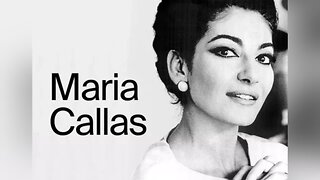 51:13
51:13
Adaneth - Arts & Literature
4 days agoLa Storia siamo Noi: Maria Callas (ENG SUB)
62 -
 6:14
6:14
Dr Disrespect
1 day agoDr Disrespect Goes for 100 KILLS in Battlefield 6
95.2K12 -
 18:28
18:28
GritsGG
12 hours agoINSANE 50 Bomb! Warzone's Most Winning Player FRIES Bot Lobby!
1.26K1 -
 LIVE
LIVE
Lofi Girl
2 years agoSynthwave Radio 🌌 - beats to chill/game to
124 watching -
 56:38
56:38
DeProgramShow
5 days agoDeprogram with Ted Rall and John Kiriakou: "Jake Tapper on the Global Hunt for an Al Qaeda Killer”
66.1K7 -
 3:44:21
3:44:21
FreshandFit
11 hours agoWhat Can These Women Give A Man That They've Never Given Before? ft. Surprise Guests
242K64 -
 2:29:28
2:29:28
Badlands Media
14 hours agoDevolution Power Hour Ep. 400: The 400th Episode Celebration – Trump’s Gamble, Biden’s Fall, and the Great American Reckoning
75.5K37 -
 2:05:10
2:05:10
Inverted World Live
7 hours agoHypersonic UFO Over Minneapolis | Ep. 128
80K15 -
 2:50:41
2:50:41
TimcastIRL
8 hours agoDemocrat Press IS DEAD, Timcast JOINS Pentagon Press Corps Sparking OUTRAGE | Timcast IRL
231K93 -
 1:32:24
1:32:24
Tucker Carlson
7 hours agoTucker and MTG on the 5 Pillars of MAGA and the Snakes in Washington Trying to Tear Them Down
65K297

